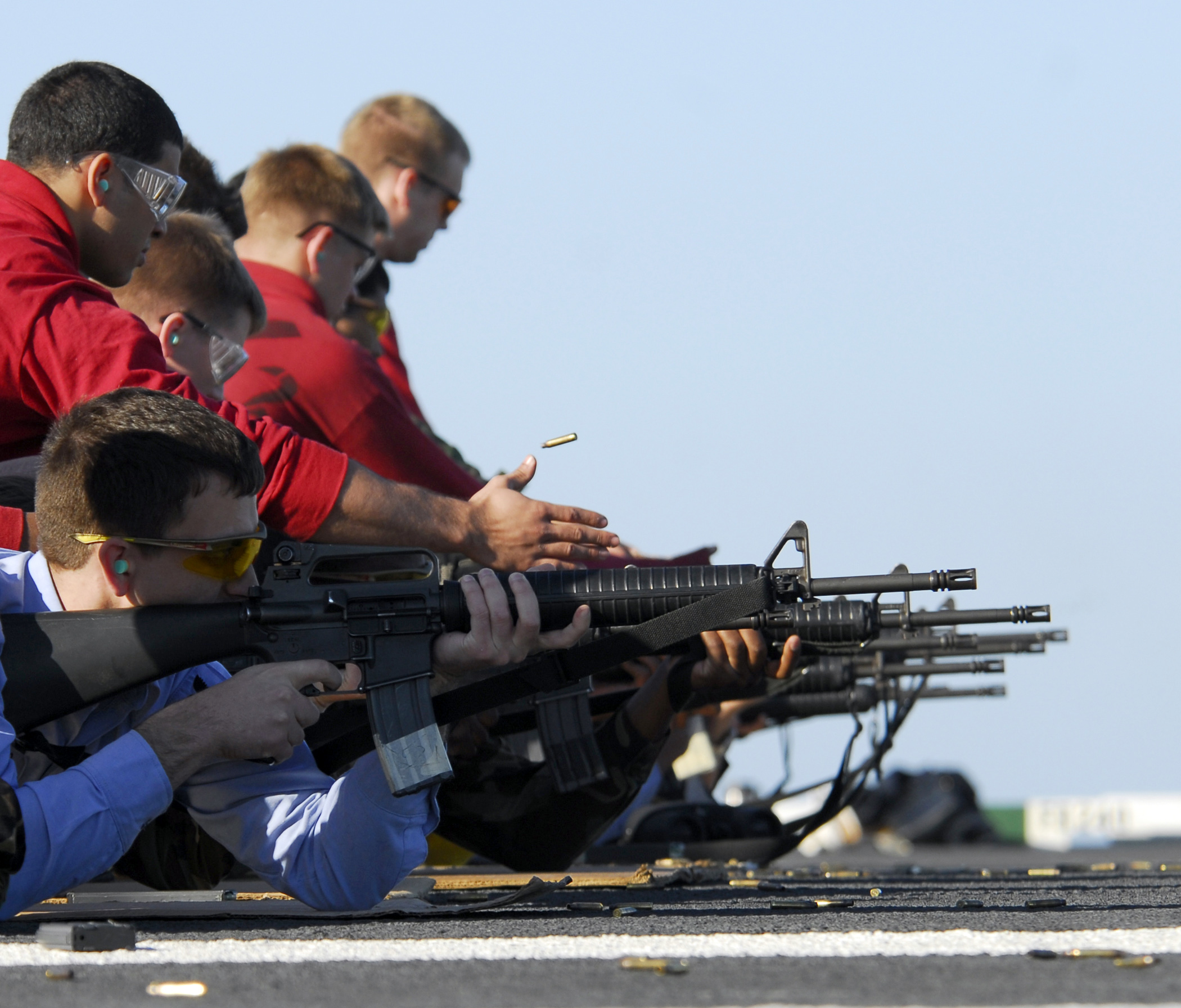 On early Friday morning, an army of several thousand heavily armed law enforcement officials descended upon the tranquil Boston suburb of Watertown in hopes of capturing the elusive second suspect in the Boston Marathon bombing, Dzhokar Tsarnaev. Tsarnaev is now in custody (albeit in critical condition from injuries sustained while fleeing from authorities); hopefully, calm will once again prevail in the streets of Boston, and the victims of this heinous tragedy will find solace in swift justice for those deemed responsible. Ultimately, this incident reflects a far more damaging and systemic trend in American society: pervasive violence.
On early Friday morning, an army of several thousand heavily armed law enforcement officials descended upon the tranquil Boston suburb of Watertown in hopes of capturing the elusive second suspect in the Boston Marathon bombing, Dzhokar Tsarnaev. Tsarnaev is now in custody (albeit in critical condition from injuries sustained while fleeing from authorities); hopefully, calm will once again prevail in the streets of Boston, and the victims of this heinous tragedy will find solace in swift justice for those deemed responsible. Ultimately, this incident reflects a far more damaging and systemic trend in American society: pervasive violence.
In the wake of the Newtown massacre and various other high profile slayings, an ongoing policy debate between politicians, non-profit organizations, and the American public about the appropriate course of action to establish preventative measures has remained largely relegated to the domain of gun-control. Advocates of more rigorous standards of gun control often cite the correlation between the staggering rate of firearm ownership and accessibility in the United States and the incidence of violent crime, whereas opponents argue along the 2nd amendment of the constitution — historically interpreted by the Supreme Court as the fundamental right to own firearms. Striking a balance between the two often proves contentious. In fact, with the survivors of the Newtown massacre looking on, the Senate failed this Thursday to find the necessary 60 votes to pass gun control legislation. The bill would have extended background checks on firearm sales to the seemingly lawless weapons markets on the internet and at gun shows, a measure supported by over 80% of Americans.
Curiously, Israel has remained at the forefront of the discourse on the direction of U.S. domestic gun policy. Advocates such as the NRA’s president Wayne Lapierre commonly invoke Israeli policy as a case study in constructing an argument against efforts to regulate the accessibility of firearms and assault rifles in America, albeit erroneously. Their arguments unfold under a questionable logic: firearms are ubiquitous in Israel, by most metrics, Israel is a relatively safe country, and therefore, the promotion of gun ownership in the United States will foster an era of unheralded safety. Inasmuch as these proponents reflect a sincere attempt to produce a safer atmosphere, they also fail to comprehend the laws and nuances of Israeli society.
Moreover, current Israeli regulations of firearms prove far more rigorous than those in the United States — in Israel, gun ownership is a privilege and not a constitutional right. For starters, permission to own a firearm requires the expressed consent of the Israeli government in the form of a permit. The Israeli government restricts the purchase of firearms exclusively to those with credible reasons to possess a weapon, such as being involved in the security industry and residing in areas that warrant additional protection. Furthermore, prerequisites for ownership include passing a mental and physical exam prior to purchase, as well as a firearm competency exam, which requires a the applicant to submit to a reexamination every three years. In terms of ammunition, Israeli law restricts gun owners to a one-time purchase of 50 bullets. To this extent, an application of Israeli protocol to United States gun ownership would certainly be deemed an infringement on rights — considering the failure to pass legislation enacting background checks on purchases.
Any honest attempt to confront the proliferation of violence in the United States certainly requires attention to more than gun policy alone. For a nation with 3.6 gun related homicides per 100,000 people — the highest among the developed world — it would be absurd for gun policy alone to shoulder the responsibility for such a systemic crisis. Nevertheless, ensuring the security of U.S. citizens is made more difficult for law enforcement by the ubiquity of lethal weapons. As a society, we must take measures to find that essential balance between individual rights and the collective good. In formulating a policy, we must be sensitive to leaving the second amendment to the Constitution intact and allowing gun enthusiasts to retain their rights while also ensuring that those possessing firearms and assault rifles prove capable, both mentally and physically, of ownership.

